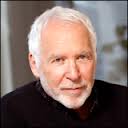Witness the Common Good: Transformation Within Reach
by Peter Block
The common good is not only about conserving the air, water, and land; it also is a transformative narrative that gives us the means to create a culture where citizens hold the capacity to collectively create what we most care about. The existing dominant narrative views the air, water, and land as economic opportunity and values individualism and worships theology of scale, speed, and convenience. It is based on our affection for competition.
An inevitable side effect of a culture of individualism, competition, and a limitless economy is the isolation and violence that we all view with concern. Isolation, or the loss of belonging, is the major challenge to the restoration of our humanity, whether in an organization, civic life, or a neighborhood. This isolation is an outcome of the story that in every domain of our interests and life, we are working and living within the context of scale, speed and convenience. This calls us to competition and leaving us on our own. It is up to me. This is re-reinforced by the consumer culture that cries out that what I have is not enough, therefore I am not enough.
The work in activating the common good creates an alternative where religion becomes more than converting the stranger and filling seats in the sanctuary. Education becomes more than each child’s race to the top. Health care becomes dependent on our connection with each other rather than the professional view that subtly holds each of us responsible for our own death and is about disease more than health. The most powerful driver of all is to realize we have options nearby to minimize the global, industrial, and information economy which equates well-being with income, regardless of whether you are rich or not.
The common good narrative is the option to the current narrative that gives first attention to the desire for infinite progress and control. All in the name of development and improvement––of the person, of the community, of nations. It is personified in Pharaoh in Old Testament times and elected officials, senior leadership, private equity and the corner office in modern times.
 Our Witness the Common Good columns, pamphlets, podcasts, and learning offerings are an invitation to join the effort to honor and co-create another narrative, one where connection, care for the whole, and re-humanizing our way of existence are occurring in the world. We want to document the path toward an alternative dominant narrative, which can be called a common good narrative. This communal narrative can become our dominant story through what we call relational activism. This is the delivery system to support the strong foundation of traditional efforts and activism based on knowledge, science, and advocacy for the commons.
Our Witness the Common Good columns, pamphlets, podcasts, and learning offerings are an invitation to join the effort to honor and co-create another narrative, one where connection, care for the whole, and re-humanizing our way of existence are occurring in the world. We want to document the path toward an alternative dominant narrative, which can be called a common good narrative. This communal narrative can become our dominant story through what we call relational activism. This is the delivery system to support the strong foundation of traditional efforts and activism based on knowledge, science, and advocacy for the commons.
What we hope to produce here are more powerful ways employees, citizens, and neighbors can together be active and accountable in bringing this foundation into being.
Relational Activism
Specifically, we want to shift the way we bring people together to support the commons. Shorthand for what we care most about: the planet, youth, health, safety, livelihood, economic and racial justice, and vulnerable beings.
 A first key step towards activating the common good is to shift where we put our attention. To re-decide who we treat as important in our efforts to create an alternative future. As long as we believe that those at the top –– in the corner office, in the academy and government and industry –– are essential to create real transformation, we are participating in the isolating, colonial, and individualistic way of operating that we are attempting to transform.
A first key step towards activating the common good is to shift where we put our attention. To re-decide who we treat as important in our efforts to create an alternative future. As long as we believe that those at the top –– in the corner office, in the academy and government and industry –– are essential to create real transformation, we are participating in the isolating, colonial, and individualistic way of operating that we are attempting to transform.
It is not that our top leaders do not have a desire to serve the common good, it is that they do not have the power or institutional capacity. We want to face the reality that the people who run things are seriously restrained in their ability to activate transformation. They spend a great deal of their time managing the news. And trying to meet the expectations of the people they purport to control.
Any narrative is given life by what we measure. Measurements are essential expressions of where we put our attention. When we measure income, scale, viral enthusiasm, gross domestic product, and retail sales, we are declaring that we will sacrifice most anything to see these numbers get larger. In a word, our current attention is on creating more, and more, and more, often called development. If we do not see the devastating impact of our societal commitment to the idea of development, then we are destined to care for the commons within a context that fundamentally undermines the finest of our efforts.
There is one book that captures this elegantly: The Future of Development: A Radical Manifesto by Gustavo Esteva, Salvatore J. Babones, and Philipp Babcicky. It defines the essence of development:
A controversial term that has meant different things in different eras but is usually used today to represent an industrialized, consumerist, materialist, and capitalist vision of economic and social success (158).
At the core of common good activism is a commitment to move in the following directions:
- Make the shift from consumer to citizen. Become citizens organizing to produce what matters –– namely, our safety, raising a child, being healthy, making a living, caring for the planet, racial justice. All are within our own hands and reach. We are the system we came to change.
- De-industrialize enterprise. Join the localization movement. Question the assumptions of speed, cost, and scale as being of inherent value. See globalization and foreign aid as the colonial and predatory strategies that they are. Make cooperative ventures, communal land, subsistence living the norm.
- Measure our well-being by something other than goods and services. Trust in each other, enter into neighborly work that produces what matters. End the internalized specialized terms that keep us frozen: poverty, underdeveloped countries, annual income, Third World, undocumented worker, underserved neighborhoods. All commodify our neighbors and label them as needs. Focus, instead, on well-being measures and an inventory of gifts, not needs. In the words of Edgar Cahn, No More Throw-Away People.
- Constrain privatization and affirm the original meaning of capitalism. Capitalism is to raise money for an enterprise from people other than those who create and manage it. Separate this from scarcity economics. Globalization. Stop using public money to create private wealth. Value the unpaid economy.
- In organizations, honor the power of non-credentialed and non-titled people to produce the outcomes we care about. Accept the idea that the inmates run the prison. The total quality efforts of the 1980’s embody this, and it works. Make the protocols of relational activism the primary way we bring people together. Even in protest which makes a difference.
Social Capital and Communal Well-Being
In the civic arena, it is in neighborhoods and citizen associations where activating the Common Good has its greatest potential, and this is where the future is now occurring. Relational activism is about building relationships among citizens and employees. “Building social capital” is a shorthand term for this: ways of being together that produce chosen accountability focused on our individual and communal well-being.
Social capital and common good activism are not built on anger or speeches, but formed by using small groups and powerful questions to engage citizens and employees in producing an alternative future. Let people at the top and at distance do their jobs in peace and join.
{#]
We invite you to join us in bearing witness to the Common Good and the activism and efforts that align with it. Witness to what the church and faith community are doing. What new journalism is being produced. New economy, architecture, new paths to safety, health, education, care for the planet, racial justice, and belonging. New institutional forms. The future exists now, if we choose it and give it our attention.
If this resonates with you join us. If this does not resonate with you, join us. In the end, that is the point.





